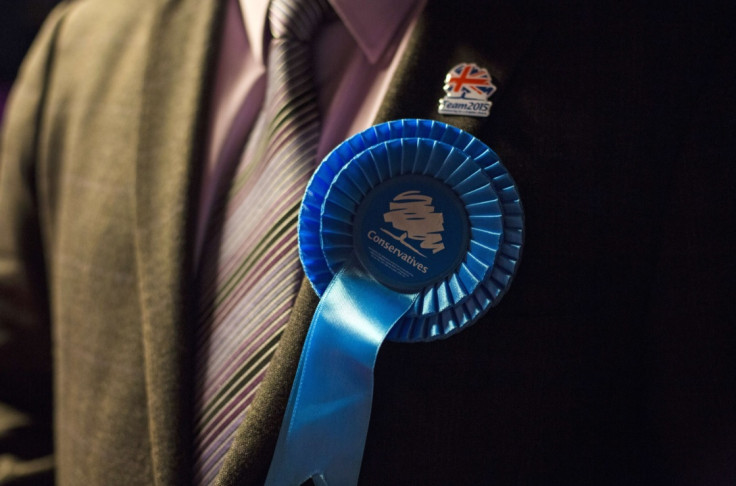Tory MPs cleared under 2015 election fraud investigation
Only file relating to South Thanet MP Craig Mackinlay still under review following CPS investigation.

No criminal charges are to be brought against any Tory MPs or officials following inquiries made by 14 police forces investigating allegations of fraud in the 2015 general election campaign, with only one file in South Thanet remaining under consideration.
The Crown Prosecution Service (CPS) had been examining whether the Conservatives broke any laws for failing to fully declare expenses during the last election campaign, including allegedly failing to declare around £38,000 ($49, 200) for the costs of hotels for activists during the "battle bus" campaign.
The CPS said that after considering files of evidence from 14 police forces – including Avon and Somerset, Gloucestershire, Greater Manchester, Nottinghamshire and West Midlands – it has ruled that no Tory candidate or election agent "acted dishonestly" or with intent with regards to disclosing national spending separately from money used to promote each candidate.
Of all the files up for review, only one from Kent Police regarding Tory MP Craig Mackinlay, who beat Nigel Farage to claim the South Thanet seat in the 2015 General Election, is still under consideration.
Conservative Party Chairman Patrick McLoughlin welcomed the judgment following what he described as "politically motivated and unfounded complaints that have wasted police time".
He added: "A number of false and malicious claims continue to be spread on the internet. People should be aware that making false claims about a candidate's personal character and conduct is an electoral offence, as well as being defamatory.
"Notwithstanding these false claims, Conservatives want to strengthen election rules to safeguard electoral integrity – in light of the real and proven cases of electoral fraud exposed in Tower Hamlets in 2015."
A CPS spokesperson said: "Under the Representation of the People Act, every candidate and agent must sign a declaration on the expenses return that to the best of their knowledge and belief it is a complete and correct return as required by law.
"It is an offence to knowingly make a false declaration. In order to bring a charge, it must be proved that a suspect knew the return was inaccurate and acted dishonestly in signing the declaration. Although there is evidence to suggest the returns may have been inaccurate, there is insufficient evidence to prove to the criminal standard that any candidate or agent was dishonest.
"The act also makes it a technical offence for an election agent to fail to deliver a true return. By omitting any 'Battle Bus' costs, the returns may have been inaccurate. However, it is clear agents were told by Conservative Party headquarters that the costs were part of the national campaign and it would not be possible to prove any agent acted knowingly or dishonestly. Therefore we have concluded it is not in the public interest to charge anyone referred to us with this offence.
"Our evaluation of the evidence is consistent with that of the Electoral Commission. While the role of the commission is to regulate political finances and campaign spending, the role of the CPS is to consider whether any individual should face criminal charges, which is a different matter with different consideration and tests."
In March, the Electoral Commission fined the Tories a record £70,000 after finding "significant failures" by the party to report accurately on how much it spent on campaigning at three by-elections in 2014 and at the 2015 UK Parliamentary general election.
In response to the CPS judgement, an Electoral Commission spokesperson said: "The rules set by Parliament to regulate political party finance are clear and well-established, they exist to ensure transparency in the system and to underpin public confidence in our democratic processes.
"Parties and candidates need to ensure they fully comply with these responsibilities under the law. The Commission will continue to provide guidance and advice to parties and others to ensure they are clear on the rules, including during the current campaigning period leading up to the UK Parliamentary General Election."
© Copyright IBTimes 2025. All rights reserved.






















